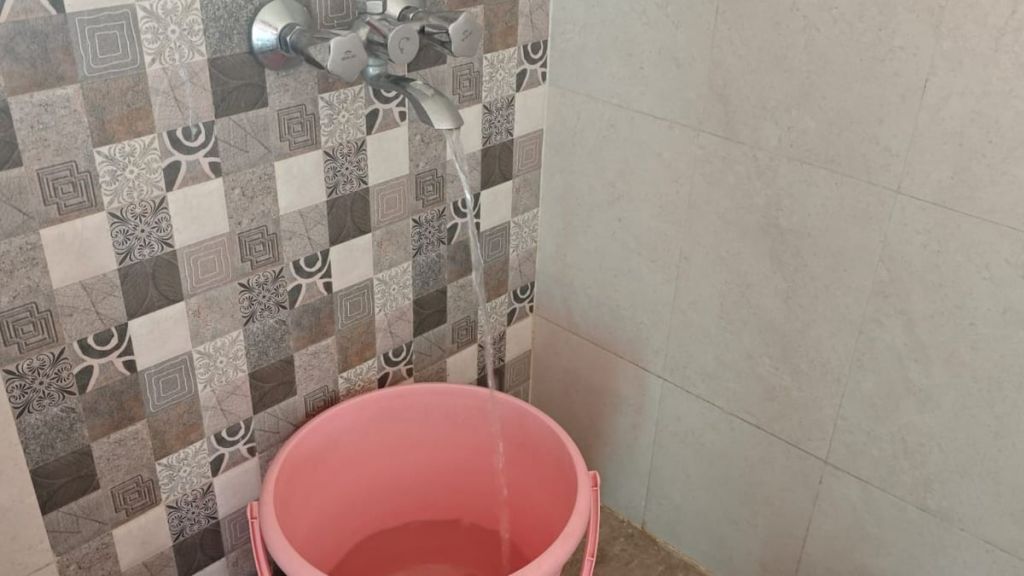
Even as the fear over Human Metapneumovirus (HMPV) has not settled down in Pune, at least 26 cases of Guillain-Barré Syndrome (GBS), an immunological nerve disorder, have been detected in Pune.
As per the information, most cases are from areas like Sinhagad Road, Dhayari, Kirkatwadi, and surrounding areas, and the patients are admitted to Dinanath Mangeshkar Hospital, Kashibai Navle Hospital, Poona Hospital, Bharti Hospital, Ankura Hospital, and Sahyadri Hospital.
The spread has been linked to contaminated water or food. Thus, to trace the source of the infections, the Pune Municipal Corporation (PMC) is inspecting the water and food in the areas that reported patients.
Dr Nina Borade, chief of the civic health department, said that the PMC has already initiated a detailed probe and constituted an expert panel. Dr. Babasaheb Tandale, scientist from the National Institute of Virology (NIV), Dr. Premchand Kambale, Joint Director of Health Services, Dr. Rajesh Karyekarte, HOD of the Department of Microbiology at B J Medical College, Dr. Bhalchandra Pradhan, state epidemiologist, and others are part of the Rapid Response Team (RRT).
What is Guillain-Barré Syndrome (GBS)?
Doctors said that GBS is a rare condition that causes sudden numbness and muscle weakness, with symptoms like severe weakness in the limbs, and most people recover fully from the condition.
Dr. Borade explained that bacterial and viral infections generally lead to GBS as they weaken the immunity of patients. It is prevalent in both pediatric and young-age groups. However, GBS will not lead to an epidemic or pandemic, she added.
Dr. Sameer Jog, a consultant intensivist, said his private hospital reported 17 suspected cases.
"This is essentially an immunological disease. After certain infections, whether bacterial or viral, the body's immune system is evoked. This evoked immunity acts against the nerves and muscles, affecting the lower limbs, upper limbs, and respiratory muscles. That is why it is called a nerve disorder," he said.
Patients develop weakness in the lower and upper limbs. Some also experience weakness in the respiratory muscles, requiring ventilator support, he added.
"The causes include bacterial and viral infections that can affect a host's immunity, leading to GBS. Common viruses linked to this include the influenza virus and rotavirus. Even dengue and chikungunya viruses are associated with triggering GBS," the doctor said.
Dr. Jog emphasized that GBS can be caused by contaminated food and water, highlighting the importance of maintaining food and water hygiene.
Symptoms of GBS
Symptoms last a few weeks, most recover fully.
Weakness or tingling starts in the legs.
Paralysis can affect legs, arms, or face muscles.
Breathing can be affected in one-third of cases.
Severe cases may impact speaking and swallowing.
Intensive care may be needed for severe cases.
Complications can include respiratory failure or cardiac arrest.
Causes
As per WHO, although the exact causes are unknown, the majority of cases occur after a bacterial or viral infection. As a result, the body itself is attacked by the immune system. One of the most frequent risk factors for GBS is infection with the bacteria Campylobacter jejuni, which causes gastroenteritis, including symptoms such as nausea, vomiting, and diarrhea. Additionally, CMV, Epstein-Barr virus, Zika virus, and other viral infections can cause GBS in people who have had the flu.
In rare cases, immunizations may raise a person's risk of contracting GBS, but this is incredibly unlikely.